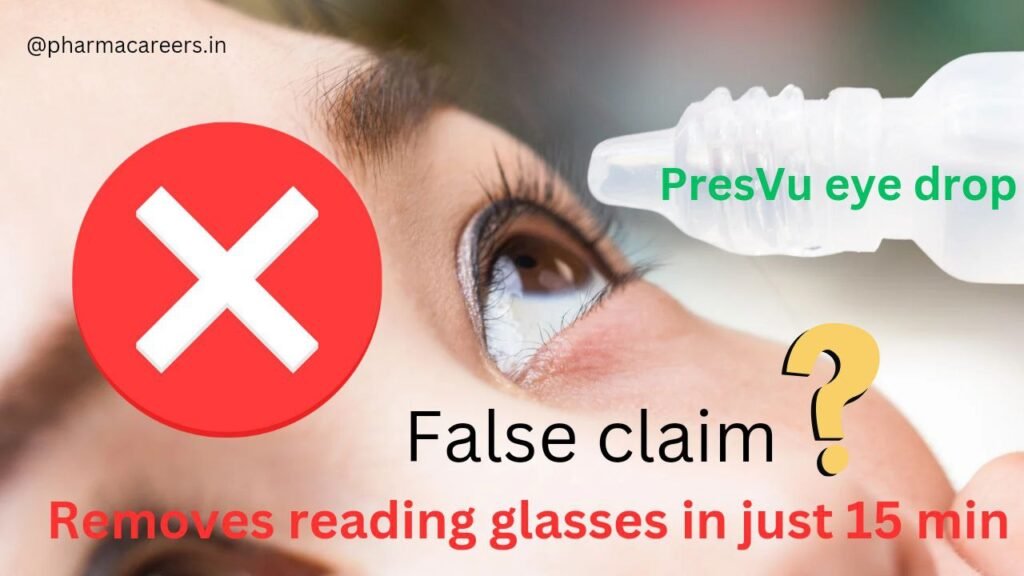Behind the Controversy: Decoding PresVu’s Claims
In the ever-evolving landscape of pharmaceuticals, a recent contender emerged: PresVu eye drops by Entod Pharmaceuticals. Promising to reduce dependency on reading glasses, these drops captured attention and sparked heated debates. But are they truly a breakthrough or just another optical illusion? Let’s dive into the controversy.

The Claims
PresVu’s marketing campaign was bold: “Say goodbye to reading glasses!” The promise of improved near vision without the hassle of spectacles resonated with presbyopia sufferers—a demographic that grows with each passing year. But what exactly did PresVu claim?
- Vision Enhancement: PresVu touted its unique formulation containing 1.25% pilocarpine—an active ingredient known to temporarily improve near vision by constricting the pupil. Could this be the magic bullet for those squinting at restaurant menus and smartphone screens?
- Lubrication Bonus: Beyond vision enhancement, PresVu claimed to provide ocular lubrication. Dry eyes, a common complaint among older adults, could potentially find relief in these drops.
The Government’s Verdict
The Drug Controller General of India (DCGI) stepped in, wielding the regulatory sword. Here’s what transpired:
- Suspension: The DCGI suspended PresVu’s license due to unauthorised promotion. Entod Pharmaceuticals failed to address queries satisfactorily, raising safety concerns. The product was pulled from shelves pending further investigation.
- Prescription-Only Status: The DCGI clarified that PresVu is approved as a prescription-only drug. It’s not an over-the-counter remedy. This distinction matters—self-medication with unapproved eye drops can lead to serious consequences.
DGCI order suspension of further manufacturing and marketing: DGCI PresVu suspension order
Medical Experts Weigh In
Medical professionals dissected PresVu’s claims like seasoned detectives:
- Dr. Cyriac Abby Philips: A clinical scientist, Dr. Philips debunked the notion that PresVu was an Indian innovation. Pilocarpine, the star ingredient, had been used for decades to improve near vision temporarily. The “first in India” claim was, at best, a marketing spin.
- Ethical Concerns: Medical experts raised eyebrows at Entod Pharmaceuticals’ promotional tactics. Misleading claims prey on vulnerable patients seeking relief. The ethical compass swung firmly against PresVu.
Entod’s Defense
Entod Pharmaceuticals didn’t take the suspension lying down:
- Clinical Trials: They cited successful clinical trials involving 234 patients. These trials allegedly demonstrated both efficacy and safety. But were they robust enough to sway the skeptics?
- US FDA Comparison: Entod pointed out that similar eye drops, with the same pilocarpine concentration, had received US FDA approval. These drops had been marketed in the US for three years without major complications. Was this a valid defense or a red herring?
The Bottom Line
As of now, PresVu remains in limbo. The battle between claims and reality rages on. If you were hoping to toss those reading glasses aside, exercise caution. Regulatory scrutiny and medical skepticism remind us that not all promises come with 20/20 clarity.
For more regular updates you can visit our social media accounts,
Instagram: Follow us
Facebook: Follow us
WhatsApp: Join us
Telegram: Join us
